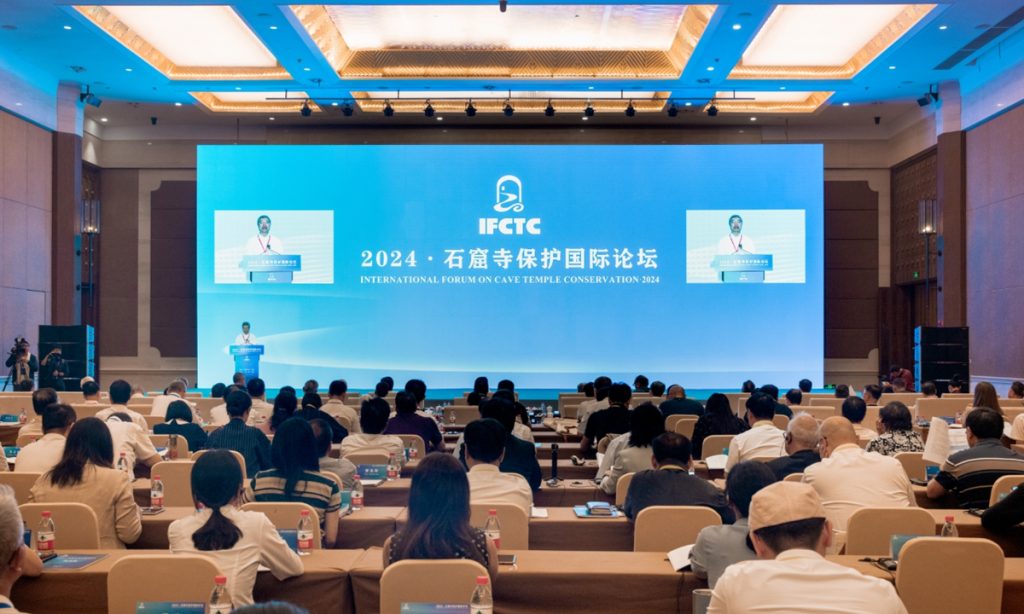More countries seek co-op with Dunhuang Academy

Following the opening of the International Forum on Cave Temple Conservation held in Dunhuang, Northwest China's Gansu Province on Monday, more countries are seeking cooperation with the Dunhuang Academy, which boasts rich experience in relic restoration and protection with the strong support of multiple disciplines as well as world-class digitization technology.
At the forum, experts in the preservation and research of grotto temples from 16 countries are engaging in discussions and exchanges in three sub-forums to further promote cultural exchanges along the Silk Road.
During the event, the Dunhuang Academy and the heritage and museum organizations of countries participating in the Belt and Road Initiative (BRI), including Uzbekistan, Kyrgyzstan, Sri Lanka and Cambodia, held a ceremony to sign a Memorandum of Understanding (MoU).
In addition, the event also launched a book presentation ceremony for a training course for Afghan senior professionals on archaeology and cultural artifact conservation.
Guan Qiang, deputy head of the National Cultural Heritage Administration (NCHA), noted at the opening ceremony that the millennium-old Mogao Caves were located at a strategic point on the ancient Silk Road and therefore served not only as a transit point for trade between the East and West but also as a junction for religion, culture, and knowledge.
"The Mogao Caves and other cultural treasures like India's Ajanta Caves and Cambodia's Angkor Wat are the prominent outcomes of the continuous exchanges and mutual learning in human civilization," he said.
The level of protection and utilization of grotto temples has significantly improved, and their cultural influence has been increasingly enhanced, he noted.
Shahbaz Khan, director of the UNESCO Regional Office for East Asia, said at the opening ceremony that the training for Afghanistan and collaboration with Dunhuang Academy is commendable and aligns with the vision of shared prosperity and cultural exchange.
"These efforts, whether in China or globally, showcase human ingenuity and the deep bond between culture and nature," he said.
Delegations from different countries told the Global Times that the protectors of the Mogao Caves share "universal values" in relics protection that they can all learn from.
Shakirdjan Pidaev, director of the Institute of Art Studies of the Academy of Sciences of Uzbekistan, told the Global Times on Monday that he expects more joint excavations with Chinese archaeological teams.